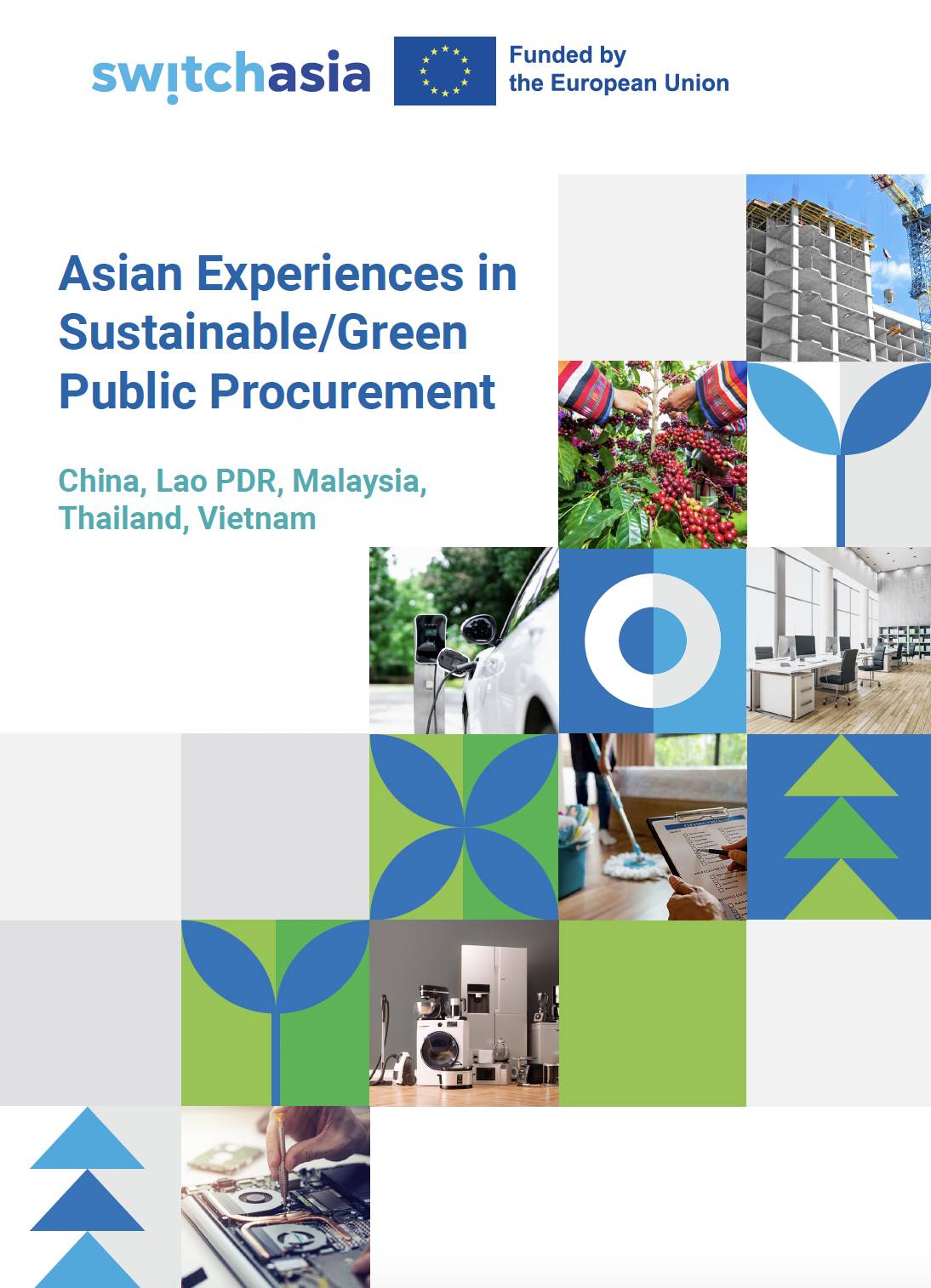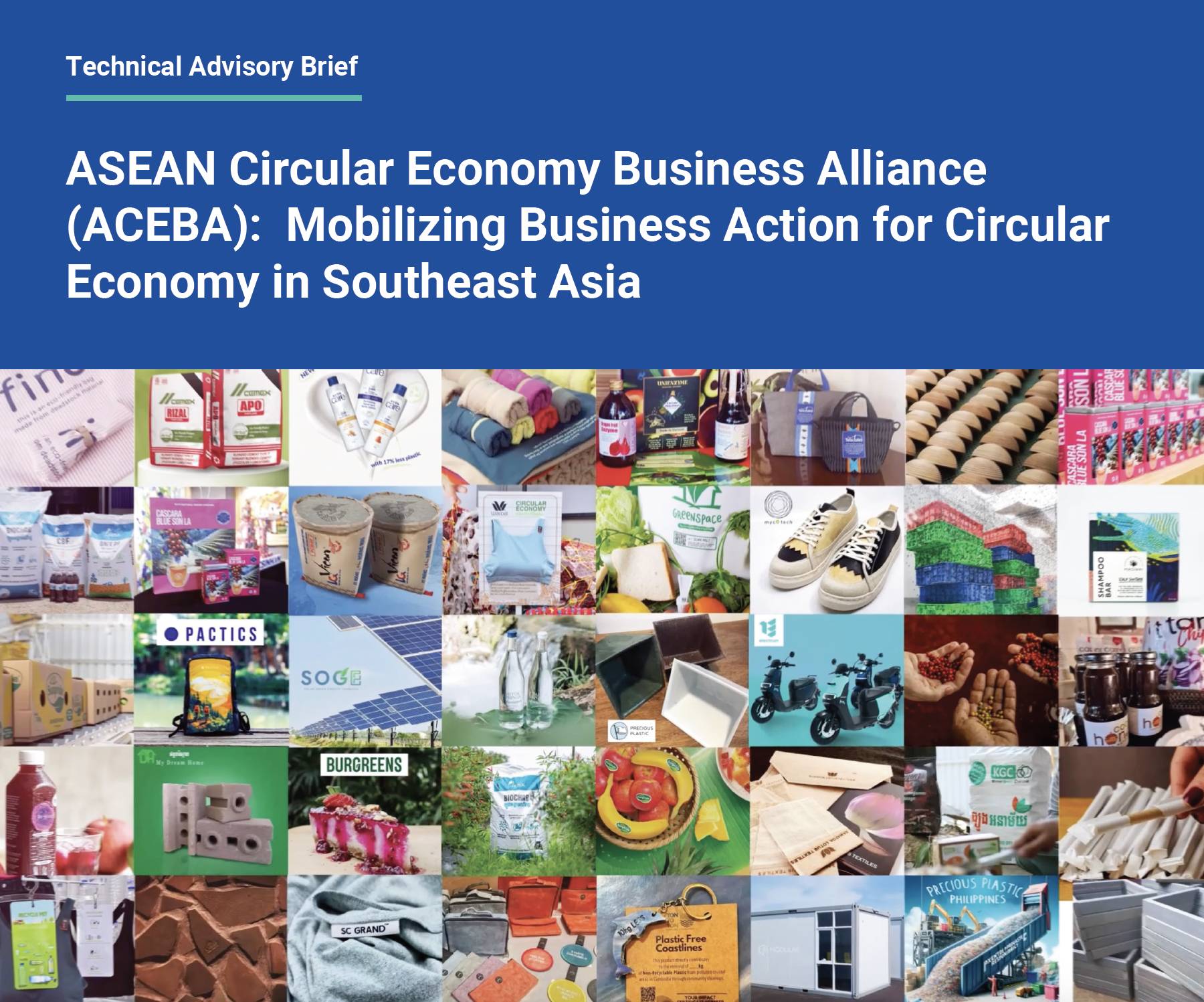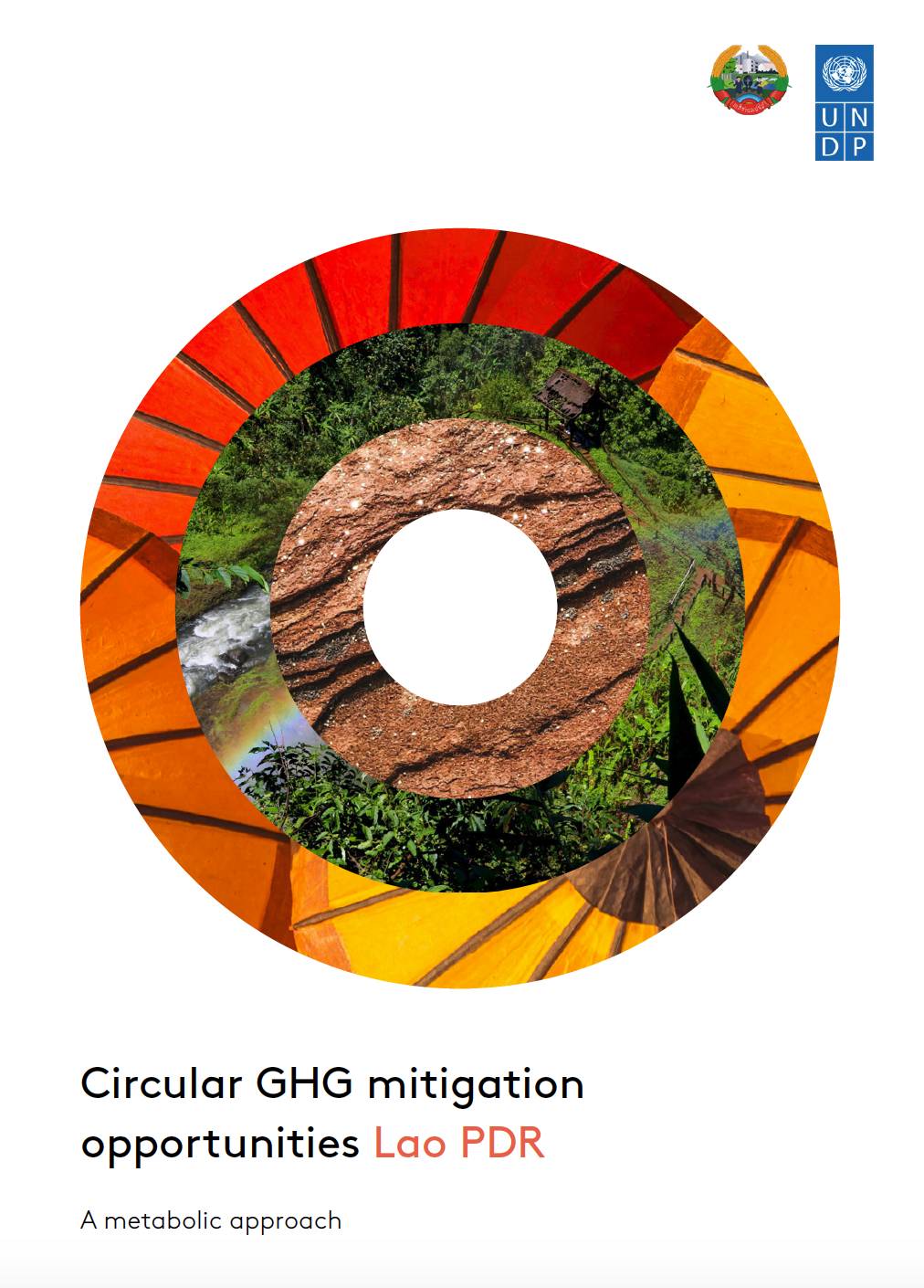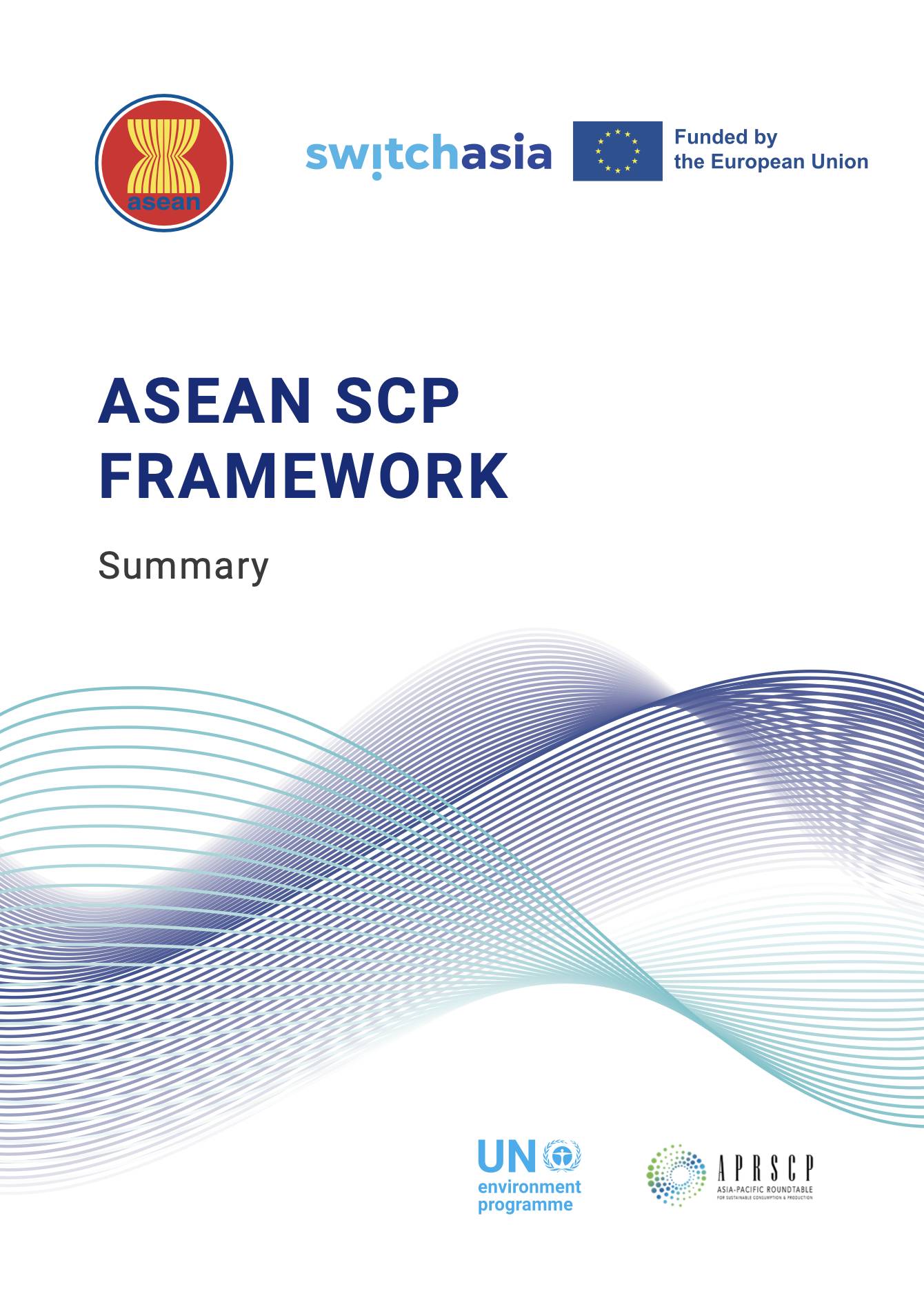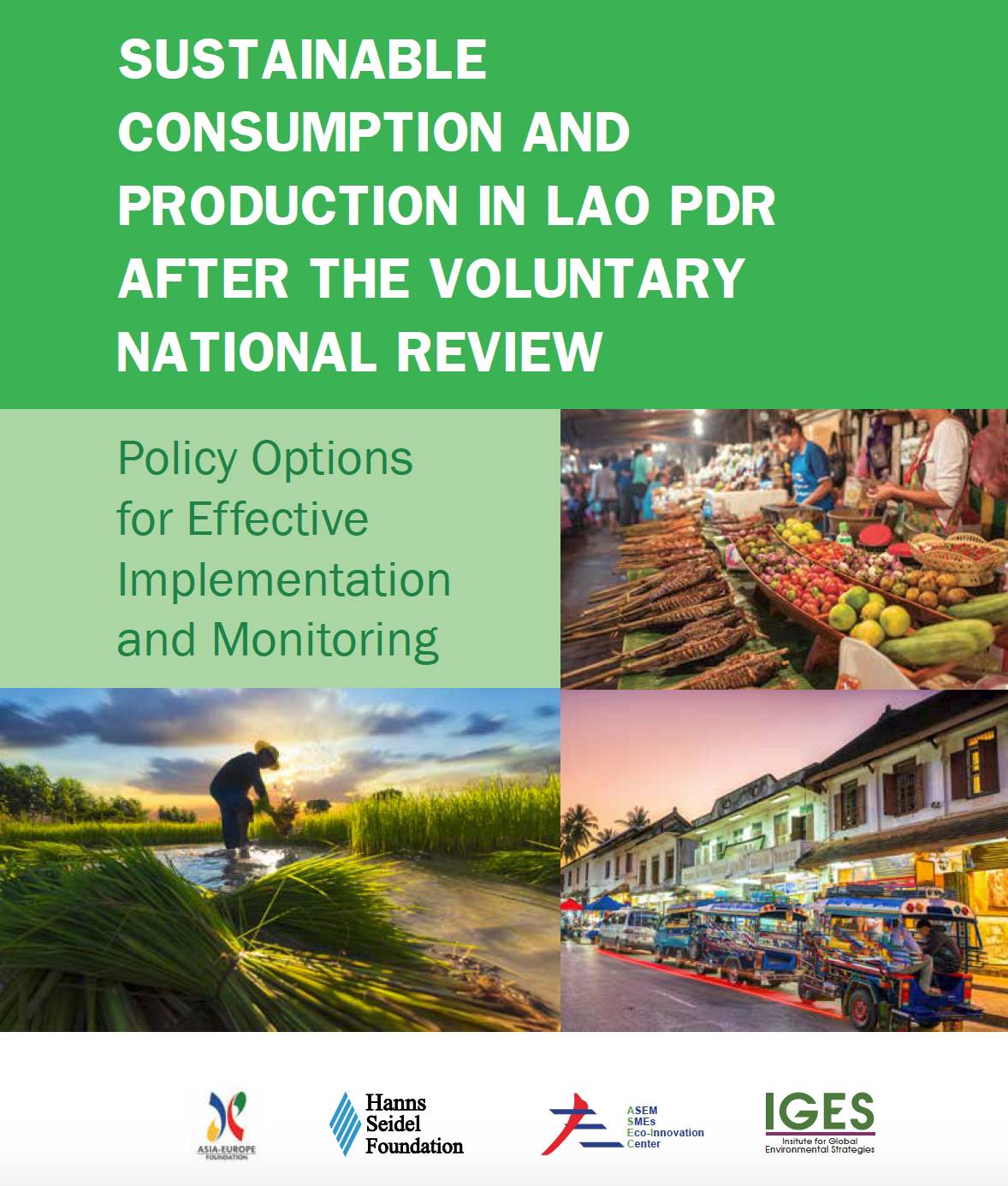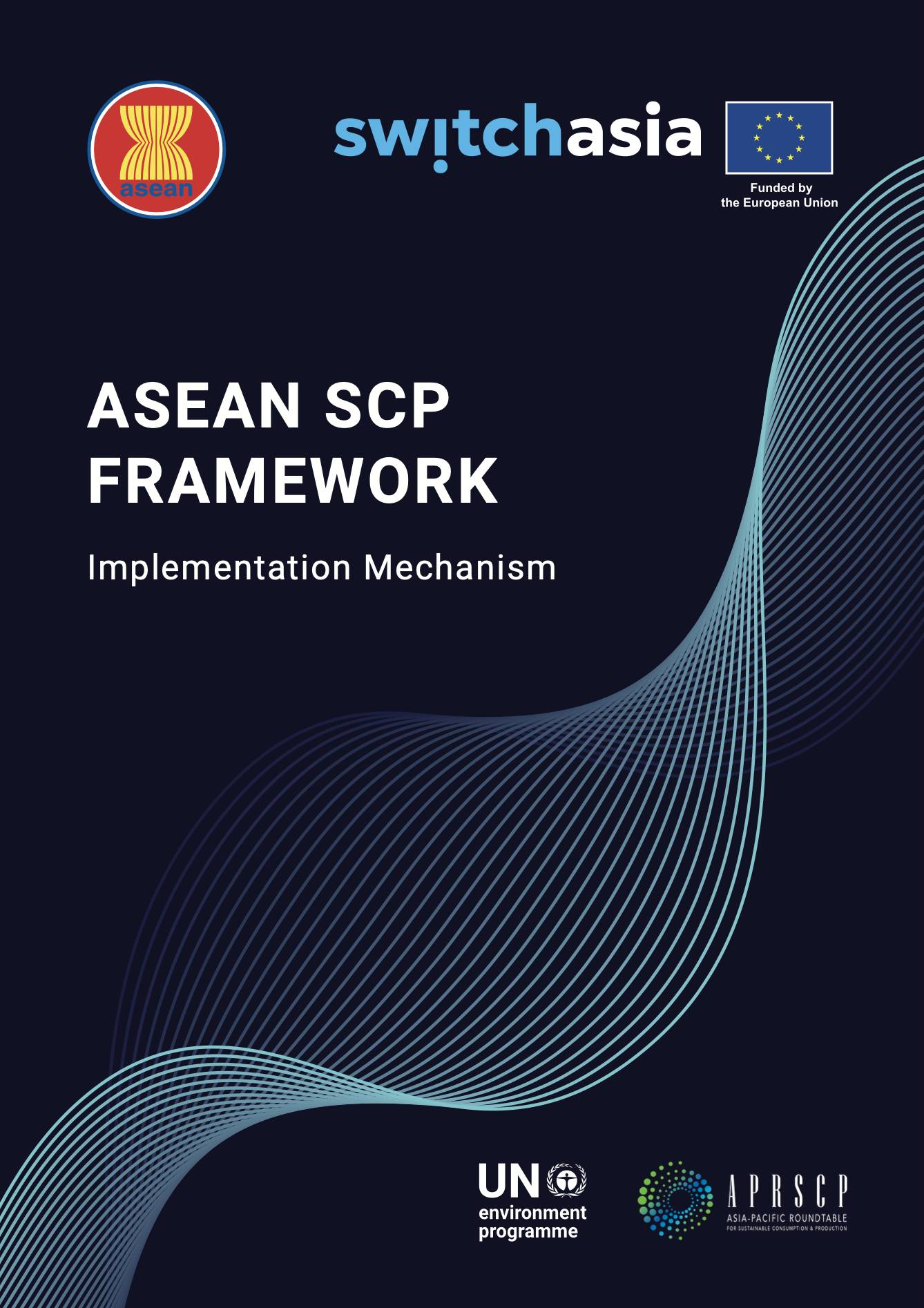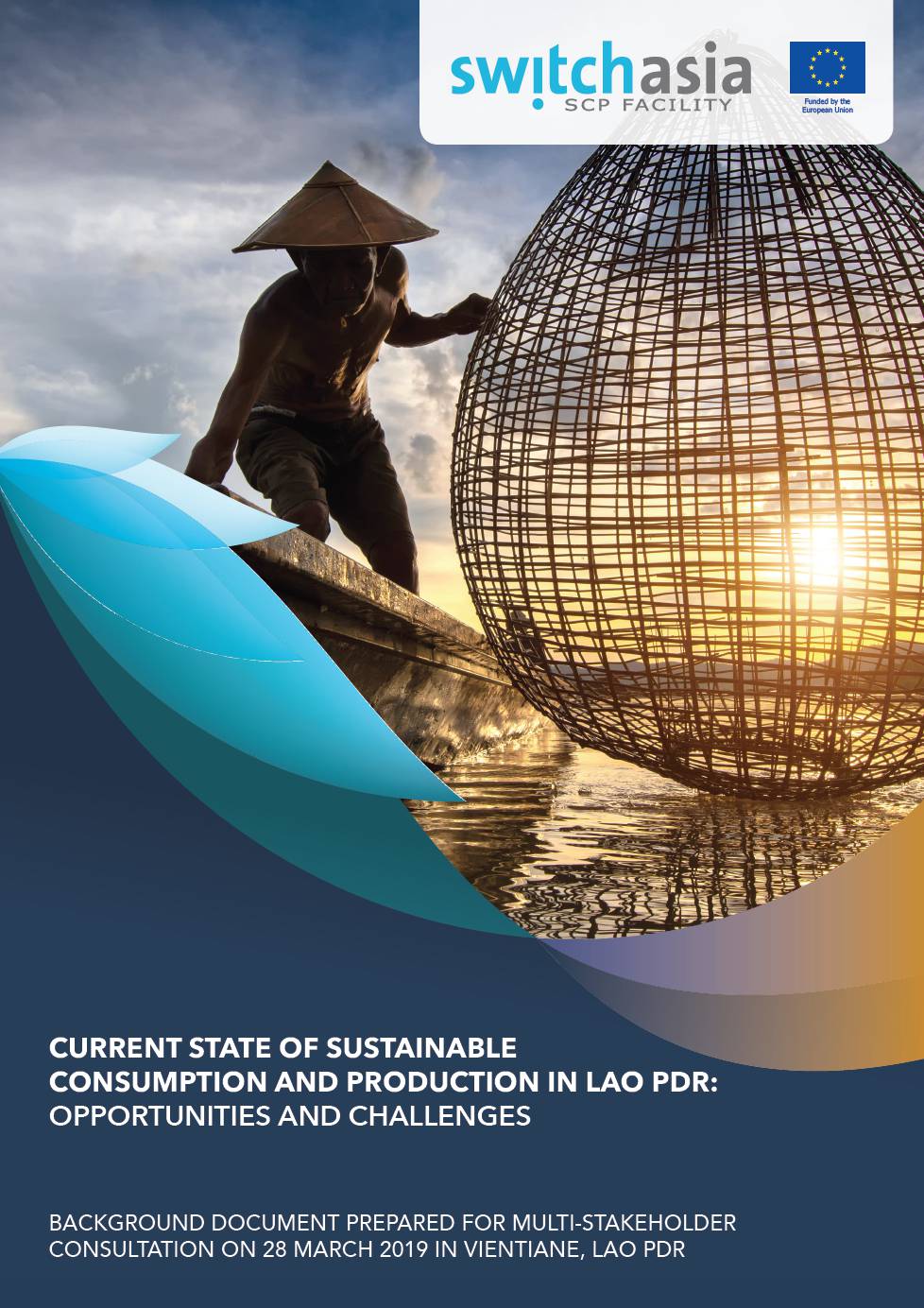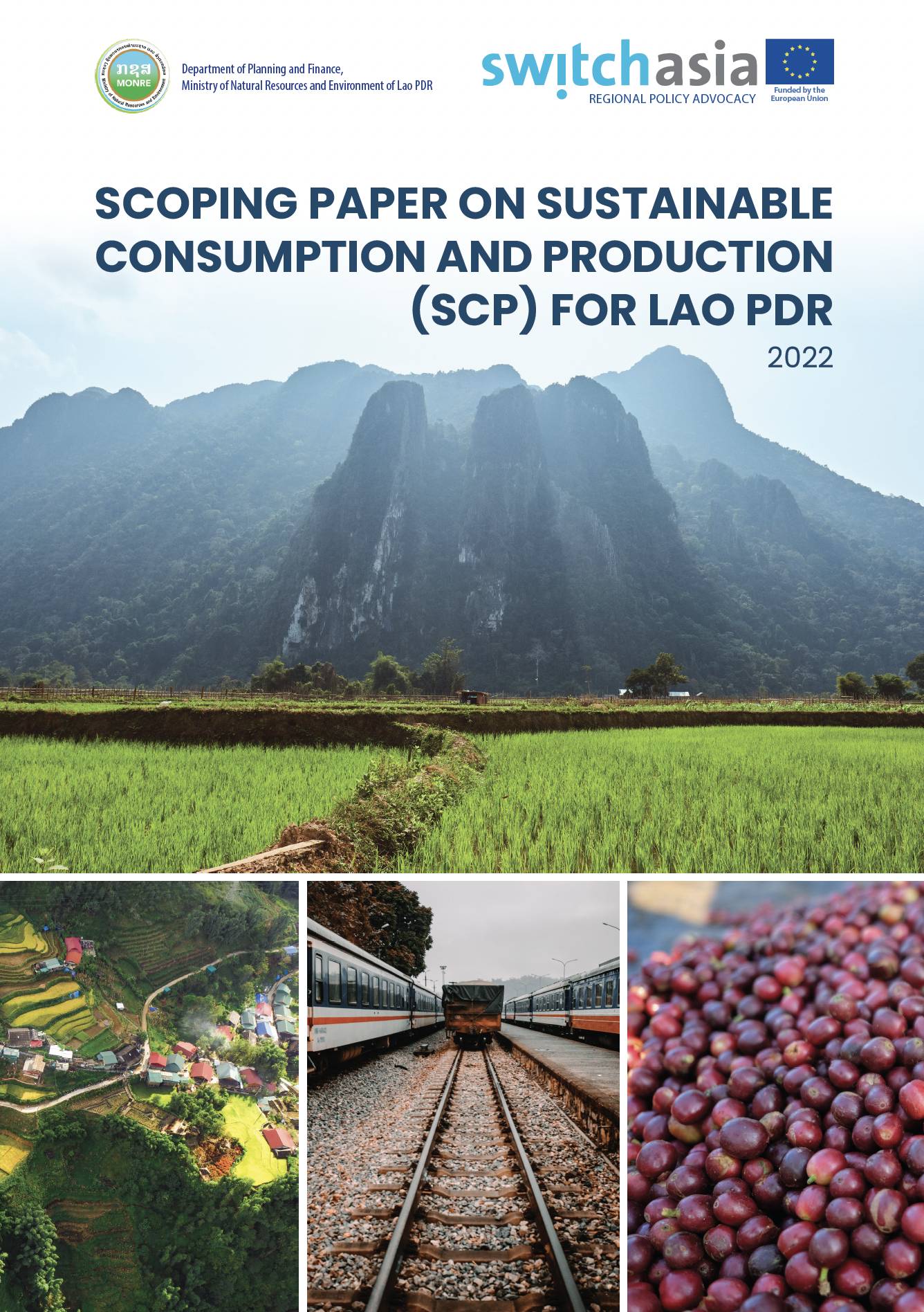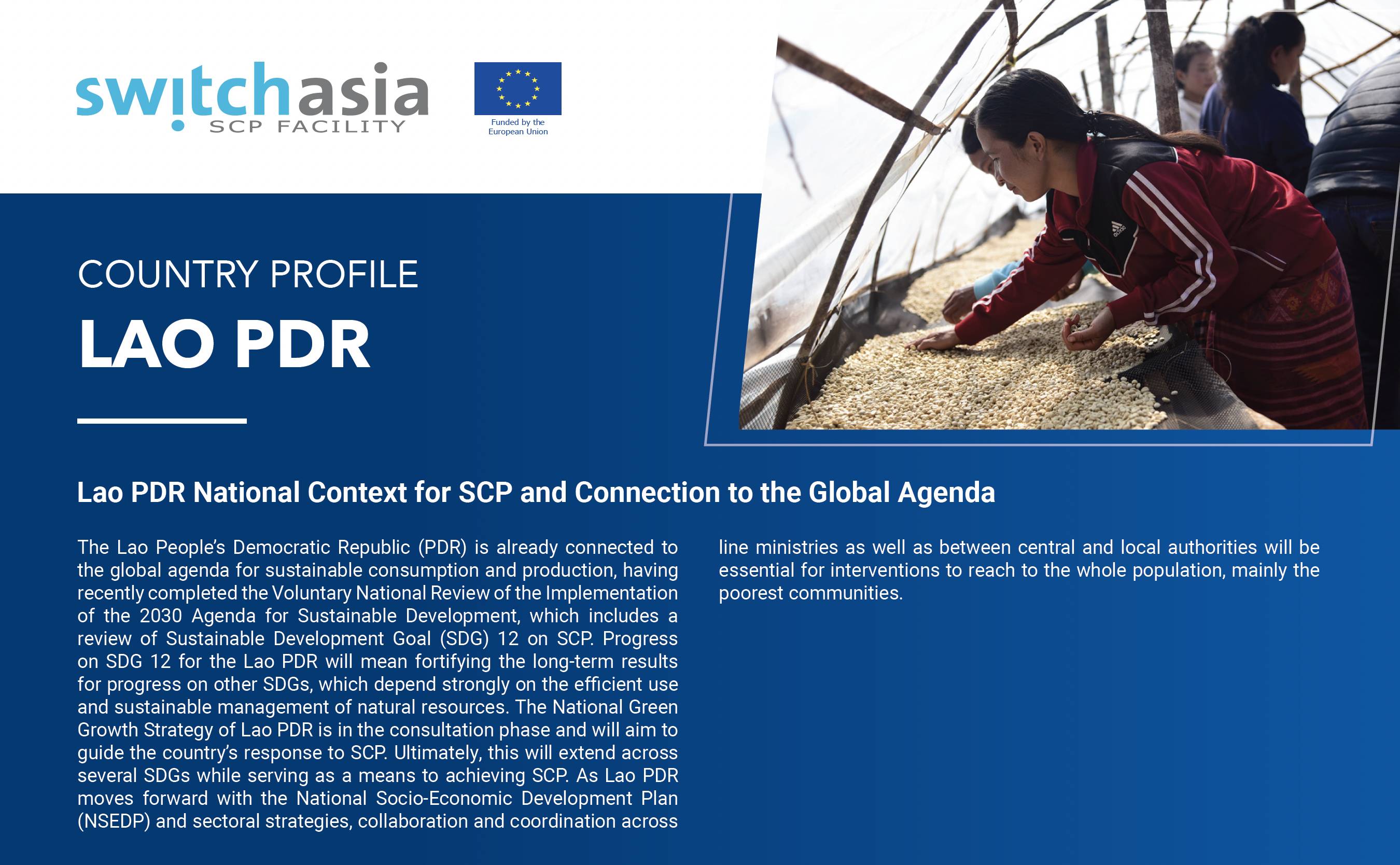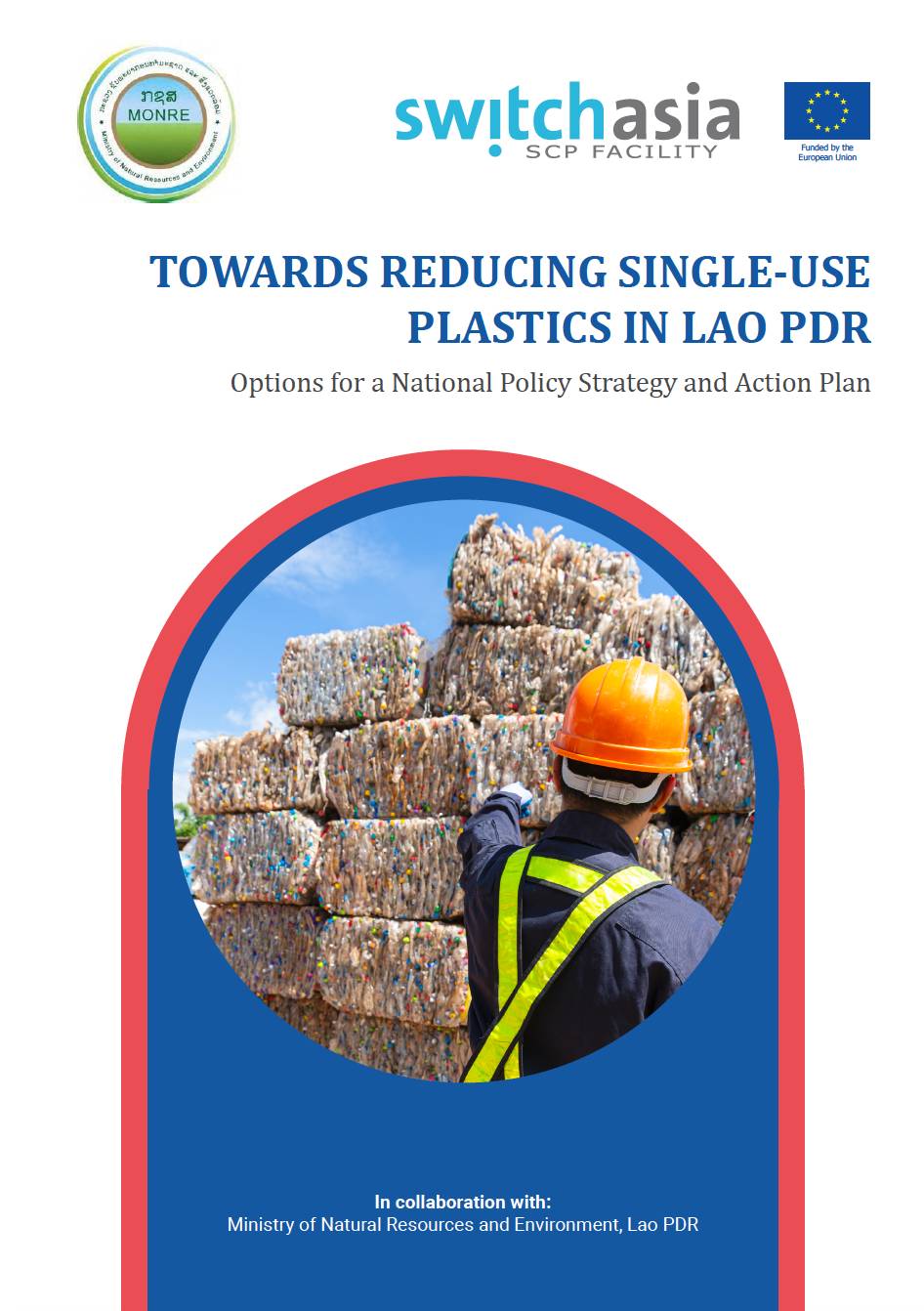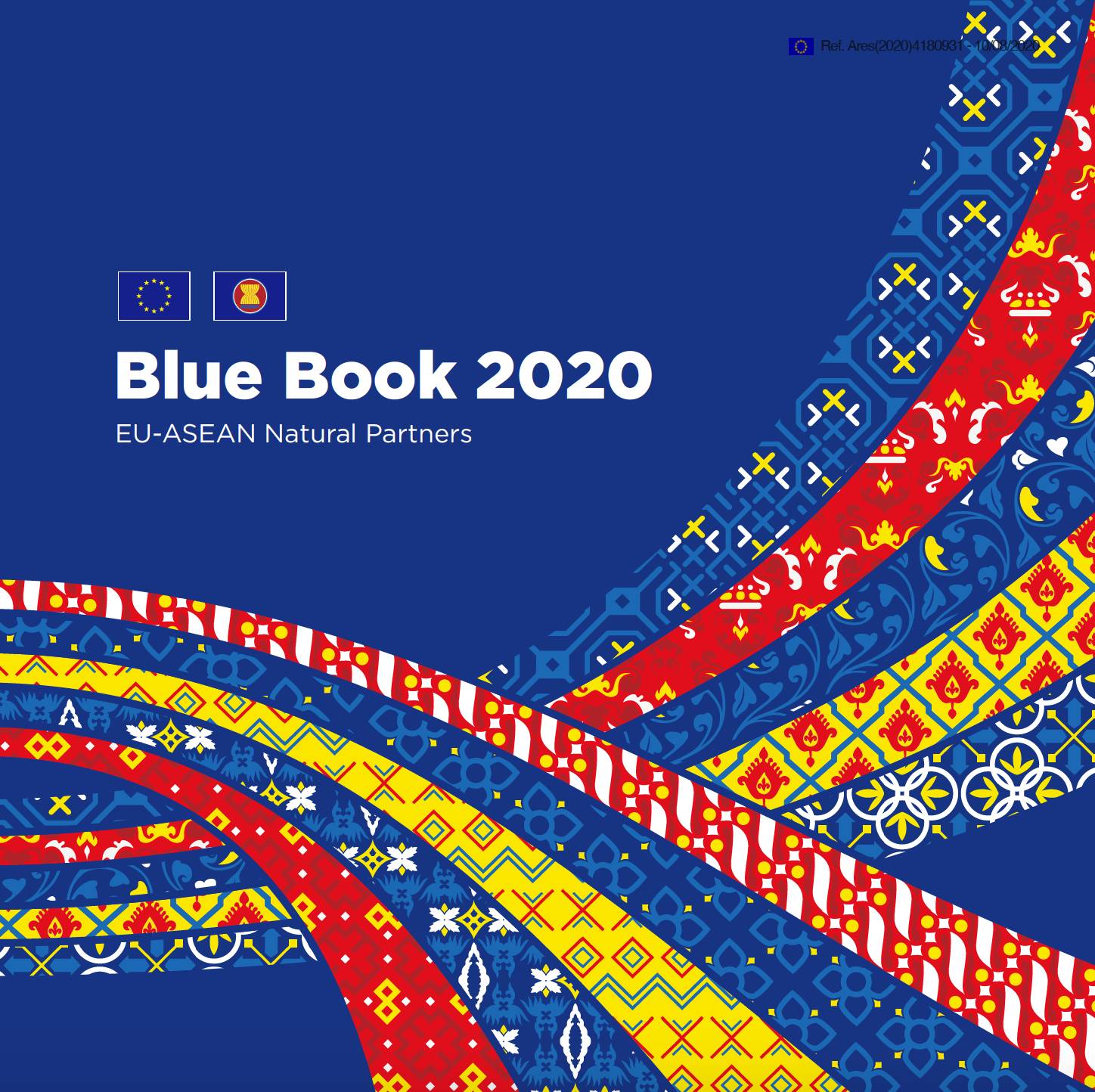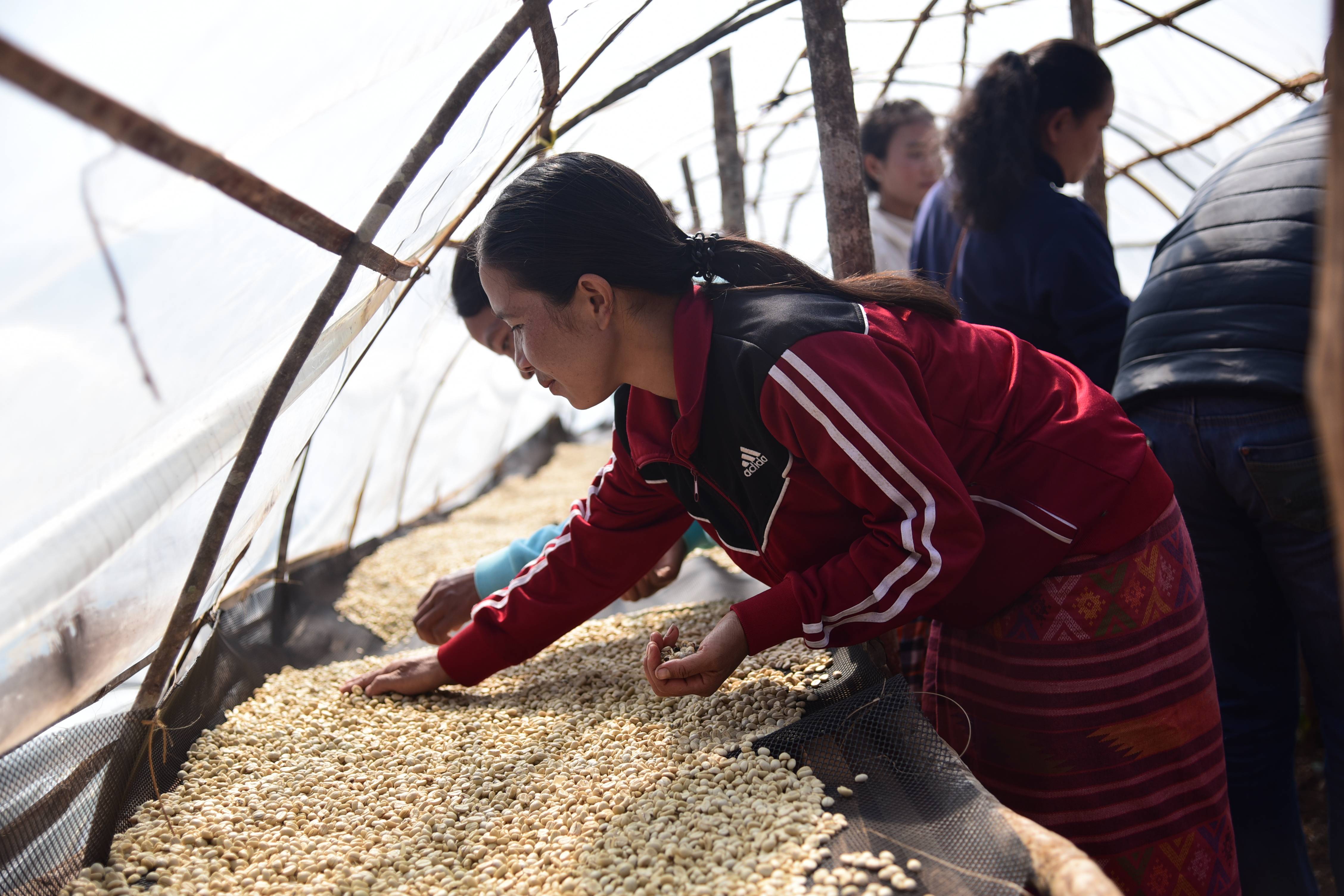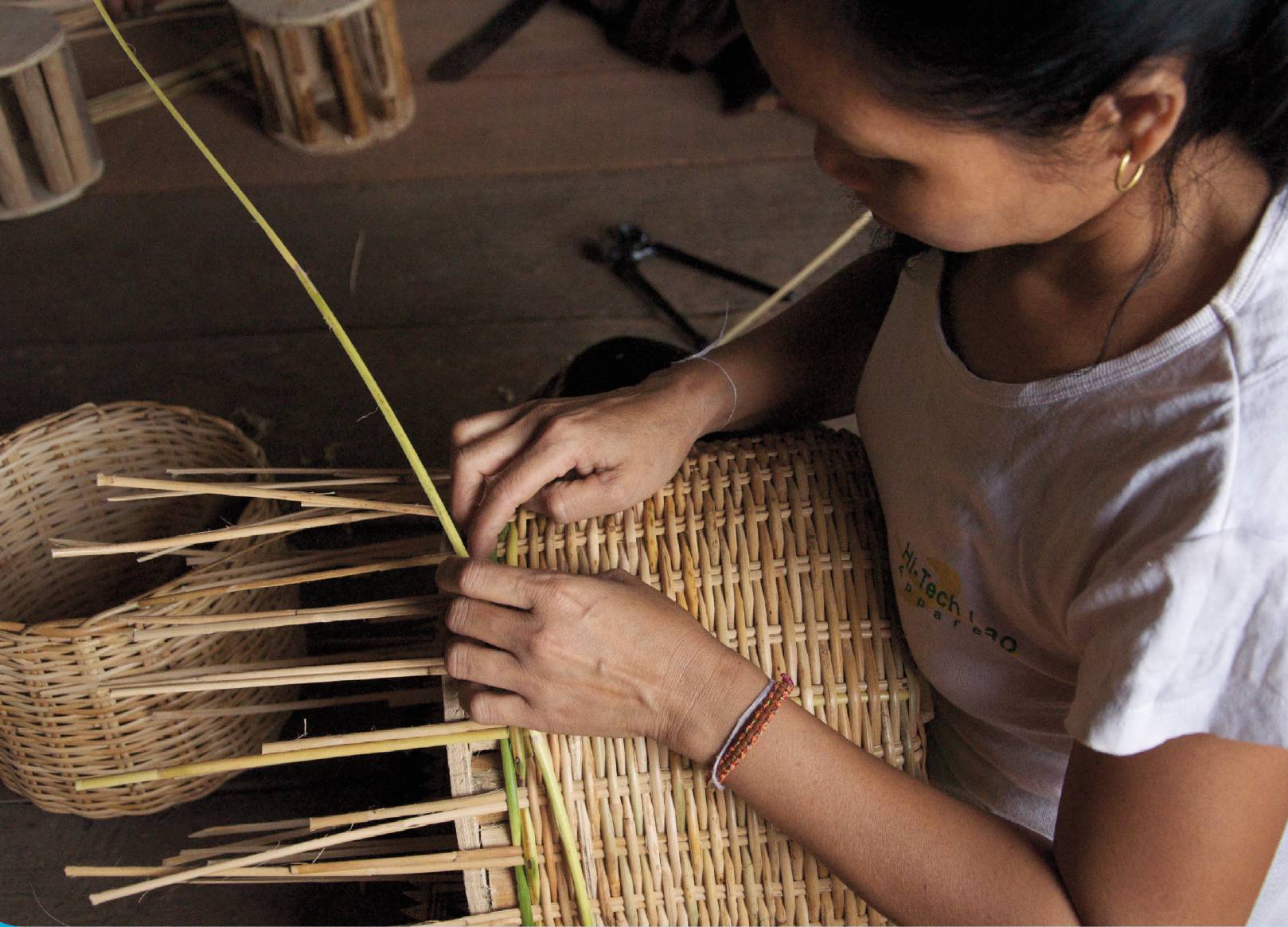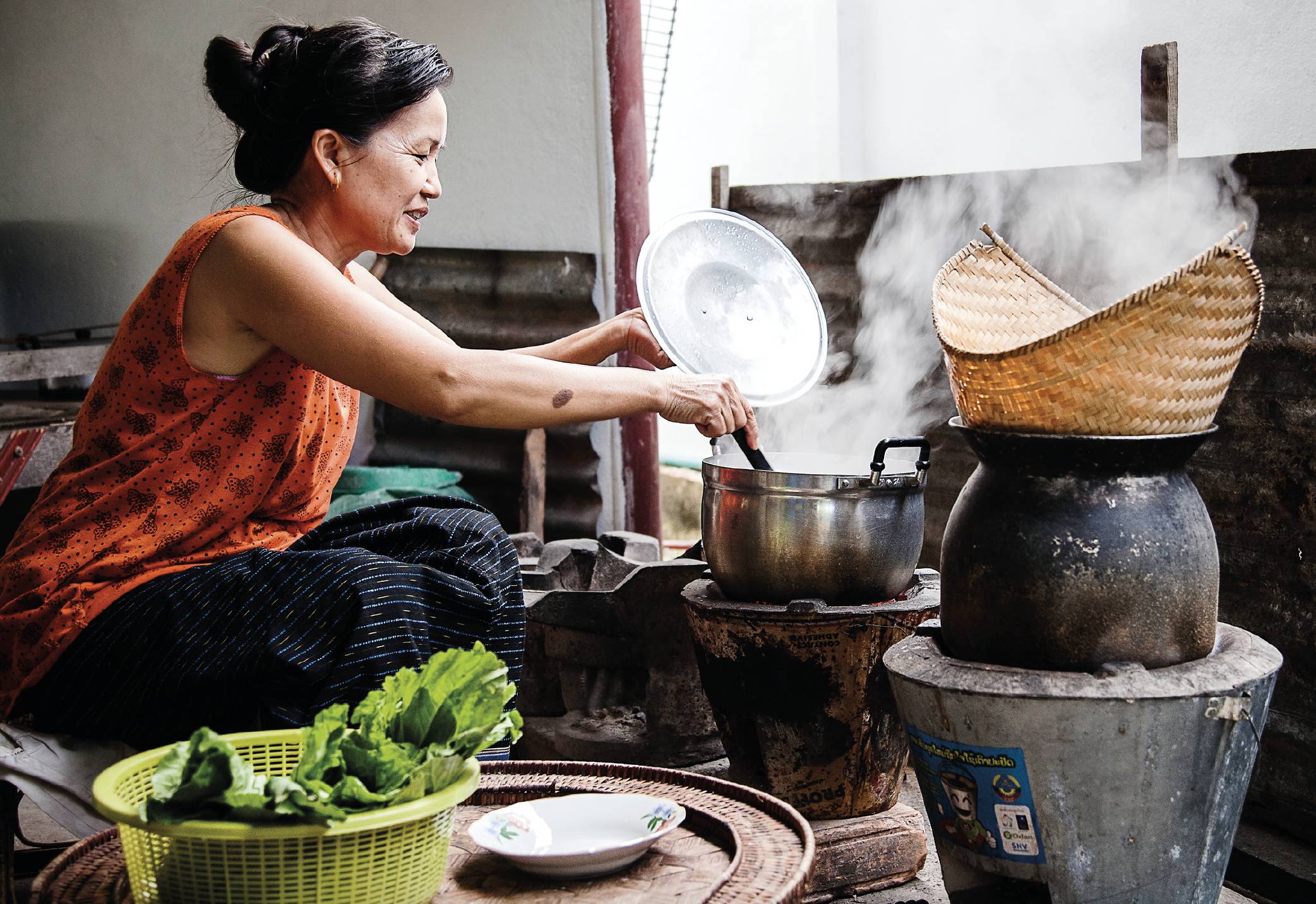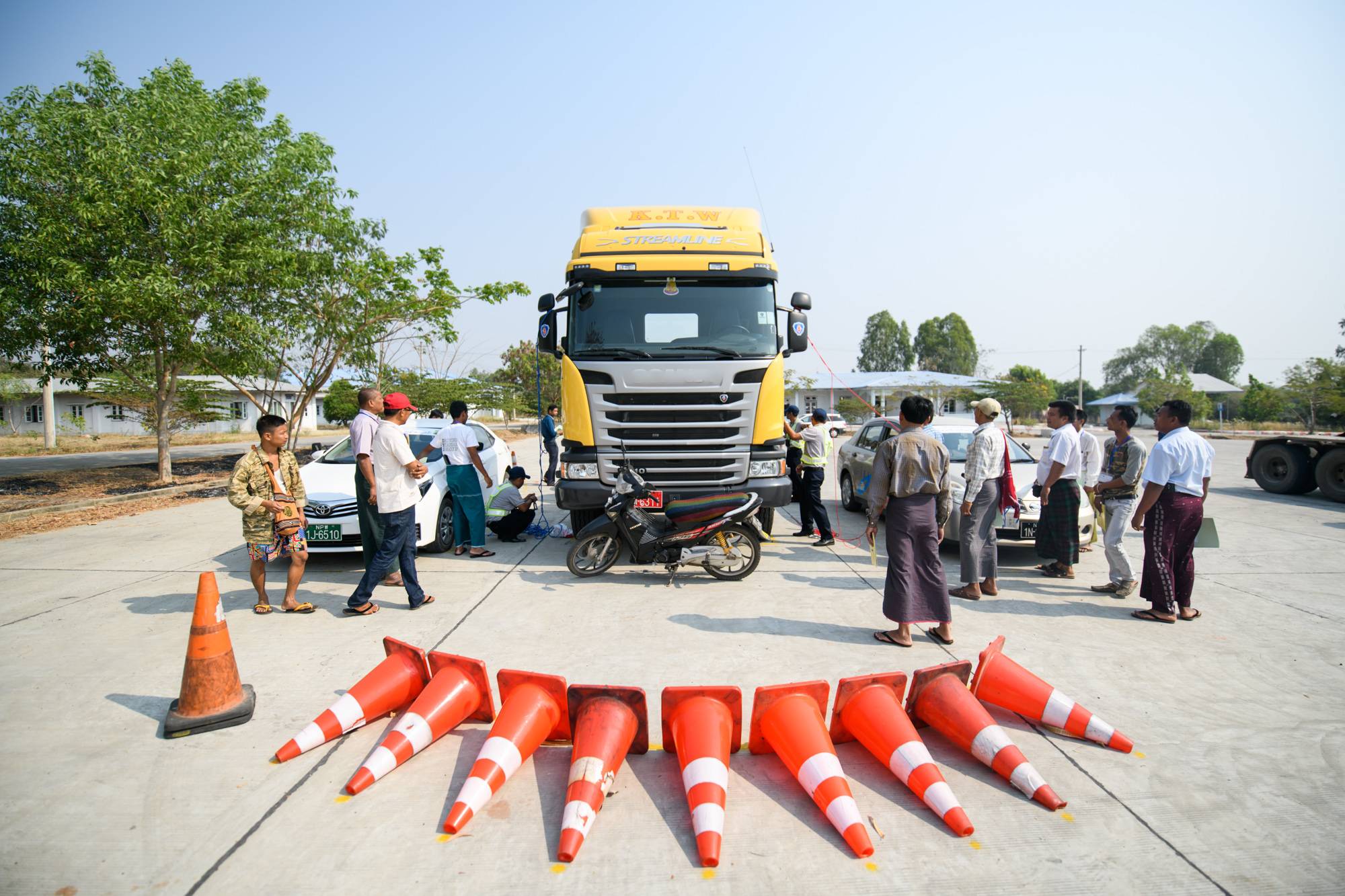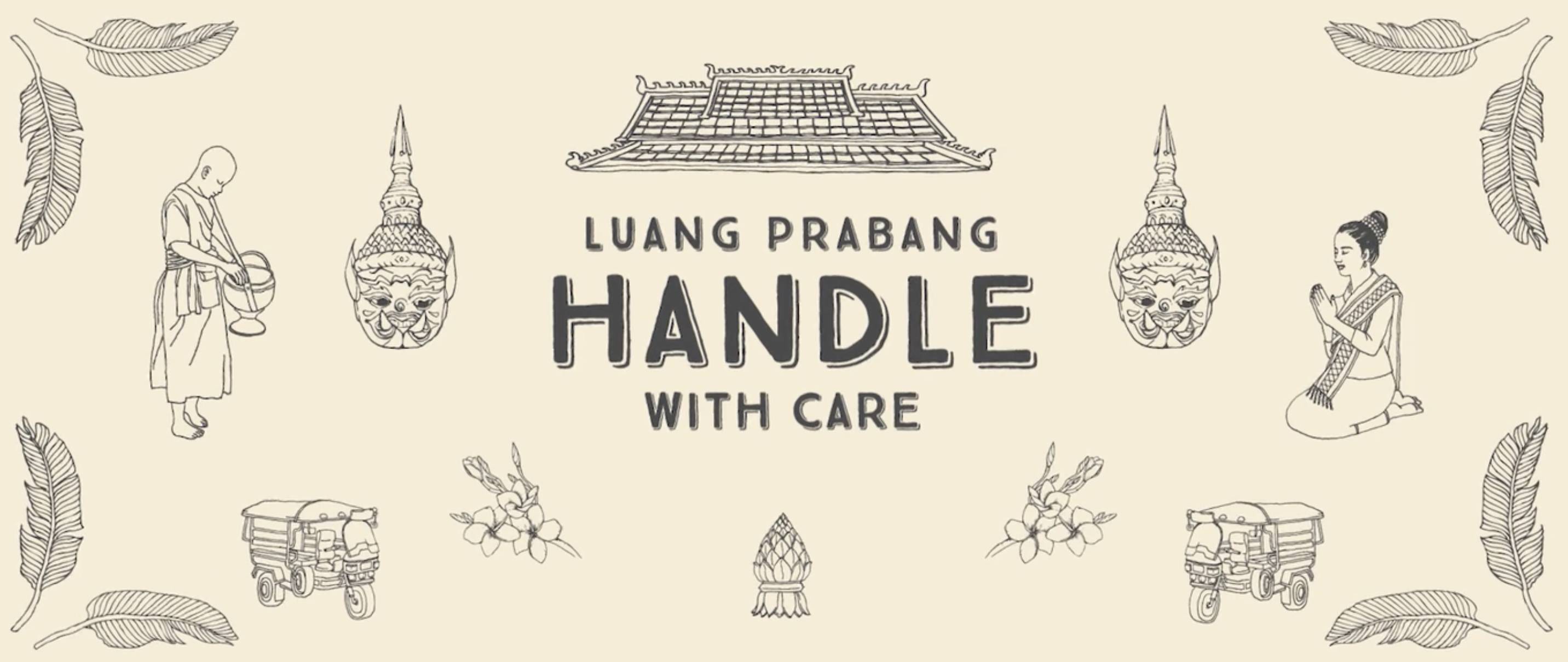
SCP Context
Lao PDR National Context for SCP and Connection to the Global Agenda
The Lao People’s Democratic Republic (PDR) is already connected to the global agenda for sustainable consumption and production, having recently completed the Voluntary National Review of the Implementation of the 2030 Agenda for Sustainable Development, which includes a review of Sustainable Development Goal (SDG) 12 on SCP. Progress on SDG 12 for the Lao PDR will mean fortifying the long-term results for progress on other SDGs, which depend strongly on the efficient use and sustainable management of natural resources. The National Green Growth Strategy of Lao PDR is in the consultation phase and will aim to guide the country’s response to SCP. Ultimately, this will extend across several SDGs while serving as a means to achieving SCP. As Lao PDR moves forward with the National Socio-Economic Development Plan (NSEDP) and sectoral strategies, collaboration and coordination across line ministries as well as between central and local authorities will be essential for interventions to reach to the whole population, mainly the poorest communities.
Challenges
- Measurement of progress is difficult as most targets under SDG 12 lack robust measurement systems, especially those that can been implemented locally.
- Existing policy frameworks are not fully aligned with SCP, while the National Green Growth Strategy is still being developed.
- While Lao PDR has done substantial efforts to localised SDGs, the awareness of policymakers and public understanding of the SDGs is weak, in particular SDG 12, and their relationship to the long-term development of the country.
- Small and Medium Enterprises (SMEs) and Government entities lack sufficient access to the best available technologies, environmental practices and innovations.
- Insufficient financing raises the risk of inefficient and ineffective sustainable development strategies and activities.
Priorities
In addition to responding to the challenges, there are key sectors that require attention and are crucial for the overall effectiveness of efforts on SCP and thus the long-term success of the SDG implementation.
- The efficient use and sustainable management of natural resources, including sustainable land management, has been identified as a priority for Lao PDR and is a cross-cutting issue linked to biomass and livestock power generation, food and agriculture processing, energy and other sectors that are resource-dependent and contribute to Lao PDR’s GDP growth. Inadequate use and management of these resources may exacerbate social and economic inequalities, thus slowing progress on sustainable development.
- Ecotourism has been defined as a national priority in the Eighth NSEDP. It is part of at least two Green Growth indicators while SWITCH-Asia currently has one grant project operating in this high-impact and rapidly growing area.
- Sustainable Public Procurement (SPP) and Eco-labelling tools are needed to improve supply chain management and consumer decisions, in particular with regard to resource efficient SMEs in textiles and garment sectors.
- Waste management, specifically with regard to including food, plastics and pollution control, is another cross-cutting issue that overlap with the same sectors affected by sustainable natural resource management, including at the individual/household level.
- The forestry industry, and in particular timber processing, is set to become an increasingly important sector in Lao PDR. The development of this industry should promote efficiencies in the in terms of inputs/output flows and of the sustainable management of timber resources.
Opportunities
- Pursuing innovative finance, including introducing government to hybrid business models e.g. subsidized service delivery by entrepreneurs; Public-private Partnership can help bridge the gap for decentralized systems, e.g. those used for small-scale energy and safe drinking water.
- Enhanced integration of SCP into government agendas is both important and possible with numerous supporting mechanisms available to aid building of coordination bodies. Engaging with regional green growth initiatives such as those by ASEAN or the Asian Development Bank can also provide resources to support these activities.
- Education and training activities can support both general and technical capacity needs around SCP, tailored to support different audiences such as rural residents, SMEs and policy makers; multistakeholder engagement can help identify the most effective platforms.
- The upcoming launch of the Green Growth Strategy and its subsequent rollout at sector level present good opportunities for stimulating line ministries to uptake SCP policies.
- Expansion of labelling and standards will not only improve safety but also resource efficiency, particularly with regard to energy, which is crucial as Lao PDR’s energy needs continue to grow with its economy.
SWITCH-Asia Activities
2018
SCP Facility
- Preliminary assessment of SCP related policies, activities, needs/gaps, and opportunities.
Regional Policy Advocacy Component (RPAC)
Facilitated the participation of Laotian key-stakeholders in the following regional/ sub-regional activities:
- Asia Pacific Low Carbon Lifestyles Challenge (19-22 Mar 2018), hosted by Thailand, regional level
- Transforming Asia Pacific: Innovative Solutions, Circular Economy and Low Carbon Lifestyles (17-19 Sep 2018), hosted by Thailand, regional level
- Asian Circular Economy Leadership Academy (3-8 Dec 2018), hosted by Thailand, regional level
2019
SCP Facility
- A multi-stakeholder consultation was organised on 28 March 2019.
- Demand was received from the National Focal Point of the Ministry of National Resources and Environment for: 1) mainstreaming SCP into the 9th National Socio-Economic Development Plan; and 2) preparing a policy report mapping related to plastic waste.
- A concept note is currently being prepared.
Regional Policy Advocacy Component (RPAC)
Facilitated the participation of Laotian key-stakeholders in the following regional/ sub-regional activities:
- “Sustainability Reporting – Thinking Circular Economy by Businesses” - This event was organised back-to-back with 2019 Asia Pacific Forum on Sustainable Development (27 Mar 2019), hosted by Thailand, regional level
- Businesses Accelerating Inclusive Green Economies – "Leaving No One Behind” - Side event on the Responsible Business and Human Rights Forum co-organised by the Royal Thai Government, OECD, United Nations Development Programme (UNDP), ESCAP, International Labour Organization (ILO) and with the participation of the UN Working Group on Business and Human Rights (11 Jun 2019), hosted by Thailand, regional level
- 2019 Southeast and Northeast Asia Policy Dialogue and Training on “Harmonizing SPP practices and Measuring SPP benefits” - The activity took place in parallel with a series of events related to green procurement organized by the China Environmental United Certification Center (CEC) (23 - 25 Oct 2019), hosted by China, regional level
- WEBINAR: SDG 12.1 Reporting for SWITCH-Asia Countries – Connecting the dots between actions and reporting (5 Nov 2019), regional level
- Policy Dialogue on SDG12 Reporting (21 Nov 2019), hosted by Vietnam, regional level
- 2019 SWITCH-Asia Leadership Academy on Circular Economy (2-6 Dec 2019), hosted by China, regional level
- "Supporting decision making on SCP through training on Sustainable Procurement” - This event was organised back-to-back with International Conference on Sustainable Energy and Green Technology 2019 (11 Dec 2019, hosted by Thailand, regional level
2020-2021
SCP Facility and RPAC
Implementation of the following activities with the Ministry of Natural Resources and Environment Lao PDR, the SCP Facility, and the Regional Policy Advocacy Component (RPAC) with guidance from EU Delegation:
- Led by RPAC, Development of the National Roadmap on SCP and facilitate mainstreaming of SCP into the 9th National Socio-Economic Development Plan (NSEDP);
- Led by the SCP Facility, preparation of a policy analysis report addressing the minimization, reduction and prevention of use of single-use plastics in selected priority sectors and collaboration of work through the joint partnership initiatives with the World Bank on developing the national plastic action plan.
2020
Regional Policy Advocacy Component (RPAC)
- The RPAC has provided technical support to Lao PDR in developing policy supporting documents i.e Scoping Study on SCP and the National SCP Roadmap to advocate and mainstream SCP into the national development plans.
Facilitated the participation of Laotian key-stakeholders in the following regional/sub-regional activities:
- SWITCH2Green Meeting - RPAC initiated the discussion and shared the first report in 2020. (April 2020)
- MOVING THE NEEDLE ON CLIMATE CHANGE – The event was co-organised by the UNESCAP as a part of the 2020 Virtual United Nations Responsible Business and Human Right Forum (RBHRF) (10 Jun 2020), regional level
- WORLD ENVIRONMENT DAY 2020 – A media kit was provided to call for action to promote SCP as a part of the 2020 World Environment Day (WED) celebration (5-7 Jun 2020), regional level
- Intervention in regional forum: Webinar on Sustainable Lifestyles for Plastics & Packaging Waste Management During a Pandemic COVID-19 (6 Aug 2020), regional level
- SCP in Tourism: Opportunities and Challenges with COVID-19 (8 Oct 2020), regional level
- Innovation and Connectivity through Farm to Fork (13 Nov 2020), regional level
- Sustainable Lifestyles for SCP (19 Nov 2020), regional level
- Support to Steering Committee of SWITCH-Asia – Provide support for the annual Steering Committee Meeting to review each country proposed 2021 workplan (3 Dec 2020), regional level
- Regional Policy Dialogue on Circular Cities (4 Dec 2020), regional level
- Regional Dialogue Driving Mechanisms for Eco-Design in Asia (9 Dec 2020), regional level
- Leadership Academy on Circular Economy 2020 (14-18 Dec 2020), regional level
- Webinar: Innovations & Startups (16 Dec 2020), regional level
2021
Facilitated the participation of Lao key-stakeholders in the following regional/sub-regional activities:
- Contextualising the Circular Economy for Action (4 Feb 2021), regional level
- Virtual Consultation: Mapping SCP in ASEAN Countries (17 March 2021), sub-regional level
- Technology for Circular Economy: A Prologue to the 2021 SWITCH-Asia Leadership Academy (25 March 2021), regional level
- Circular Economy and Sustainable Lifestyles Course (18 May 2021), regional level
2022
SCP Facility
- Ongoing collaboration with World Bank in building the capacity of the Ministry of Natural Resources and Environment to prepare the National Plastics Action Plan in Lao PDR and ensuring multi-stakeholder engagement in policy consultation processes.


